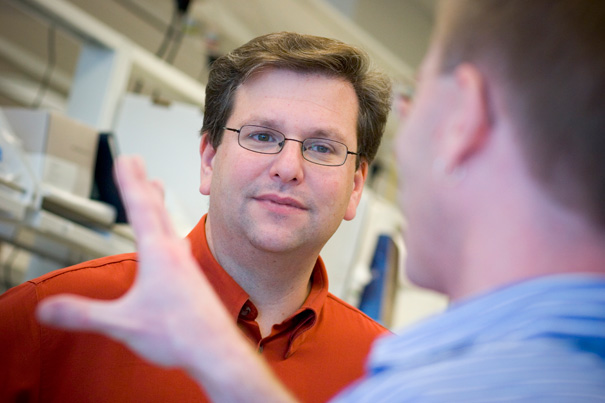Health
-
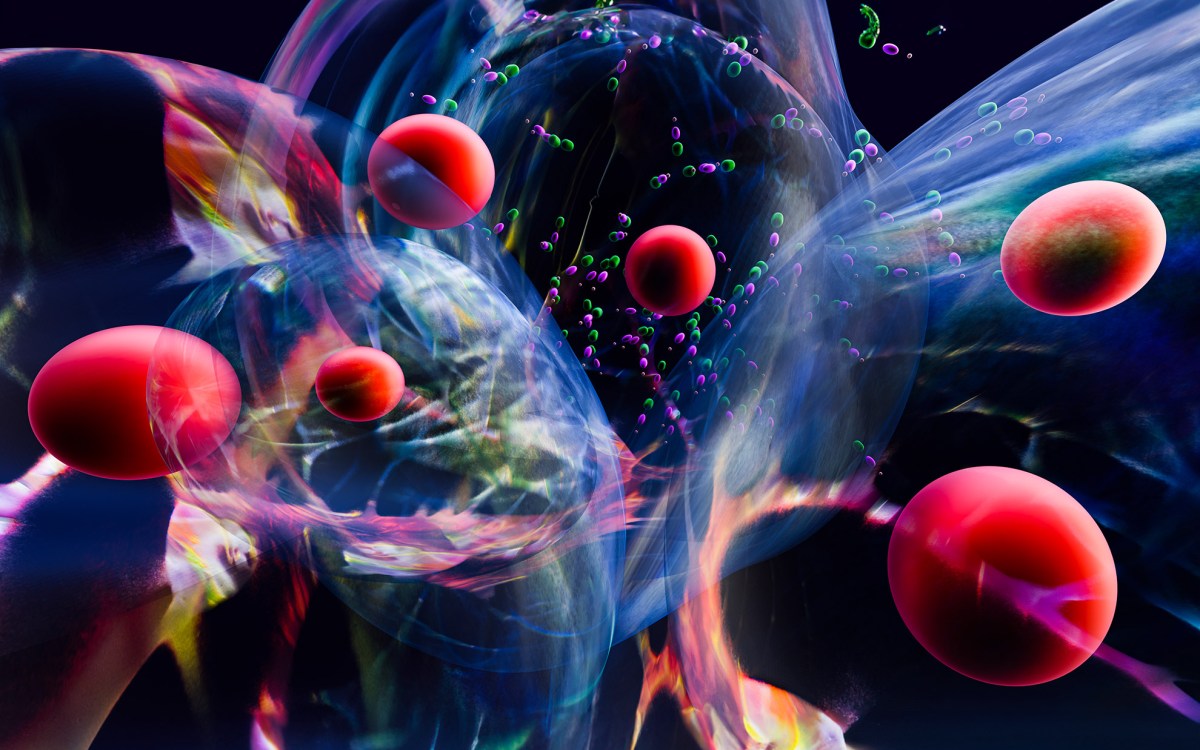
Break in the case for long COVID investigators
Research highlighting chronic inflammation opens path to treating illness that affects millions of Americans

-

The problem with the school smartphone debate
Study finds most districts already regulate devices. Is the real issue enforcement?

-
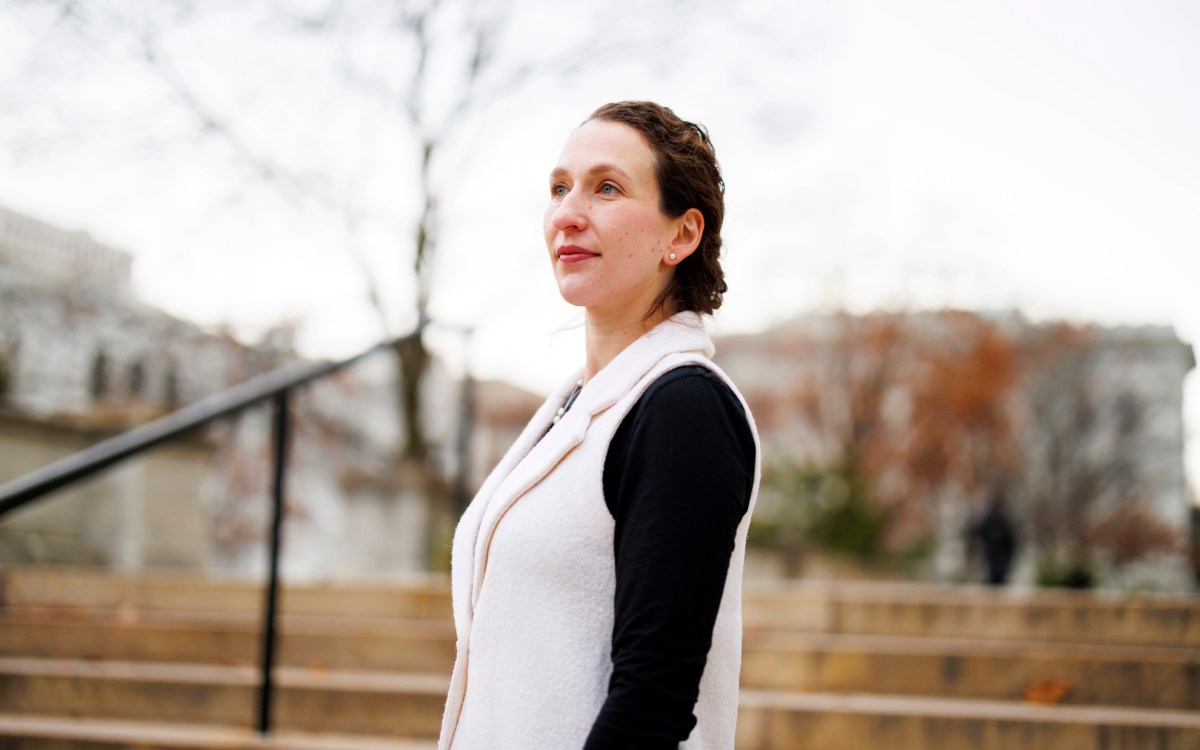
Just who gets a say at FDA public drug-approval hearings?
New research shows negative voices are relatively rare in drug approval hearings.
-

Your digital twin might save your life
AI, statistics offer new possibilities for personalized medicine
-
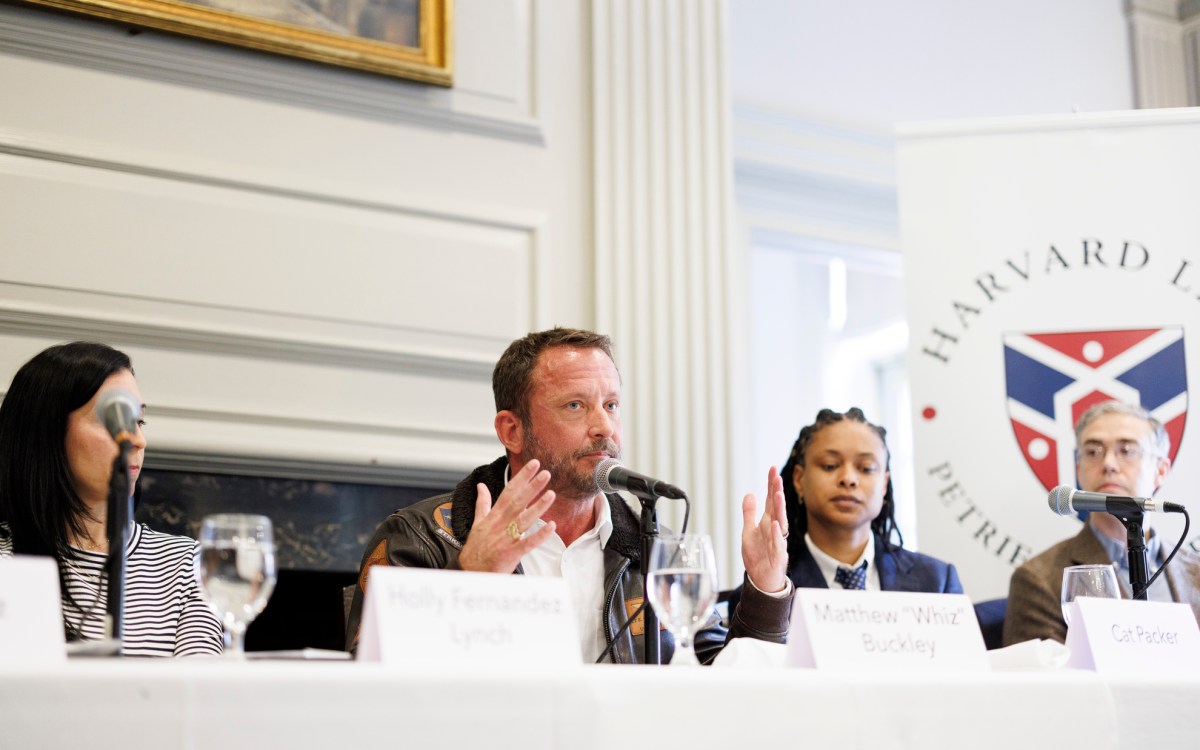
Time to legalize psychedelics?
Campus debate weighs therapeutic need vs. safety questions
-

How a toxin from the gut microbiome may help spark colorectal cancer
Findings suggest colibactin may be promising target for disease prevention

-
Synthetic future
In the synthetic biology lab of Professor Pamela Silver, researchers are looking for ways to make biological engineering faster, cheaper, and more predictable.
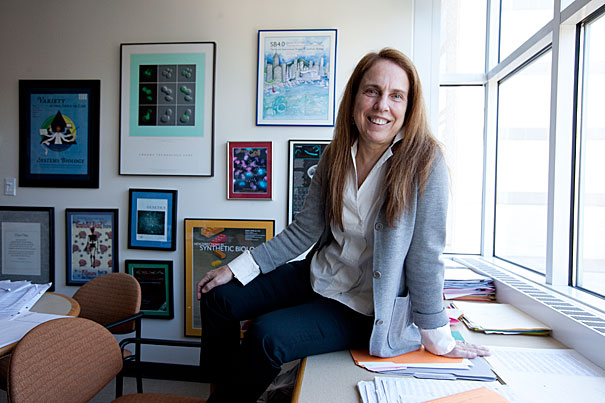
-
A story that doesn’t hold up
A study conducted by Professor of Psychology Richard J. McNally and colleagues from the University of Groningen and the University of Amsterdam is casting doubt on the “amnesia barrier” that has long been a hallmark of multiple personality disorder, now called dissociative identity disorder, by demonstrating that patients have knowledge of their other identities.
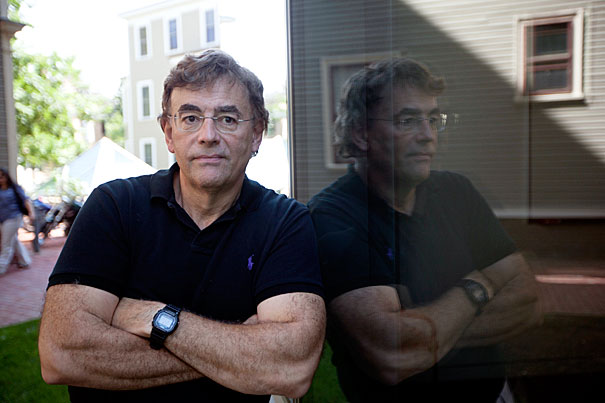
-
CYCLOPS genes an Achilles’ heel in tumors?
Researchers at Harvard-affiliated Dana-Farber Cancer Institute and the Broad Institute of Harvard and MIT used new technology to explore a 19-year-old theory, discovering what may be an Achilles’ heel for cancer cells: essential genes disrupted in the process of becoming cancerous that can be attacked further with drug therapy.
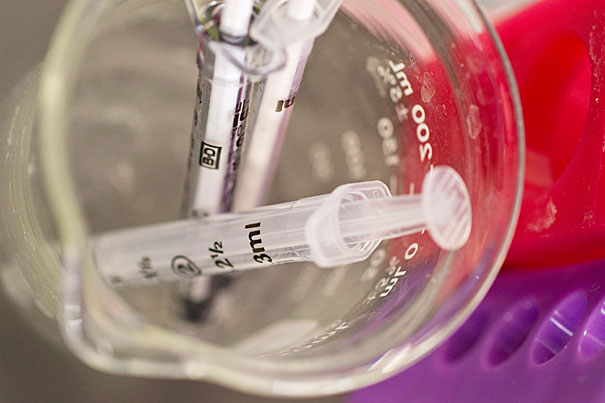
-
The tangled web around spiders
A biologist with an affinity for spiders shared his passion, taking the audience on a tour of arachnids large and small and making a pitch for their conservation as natural pest control.
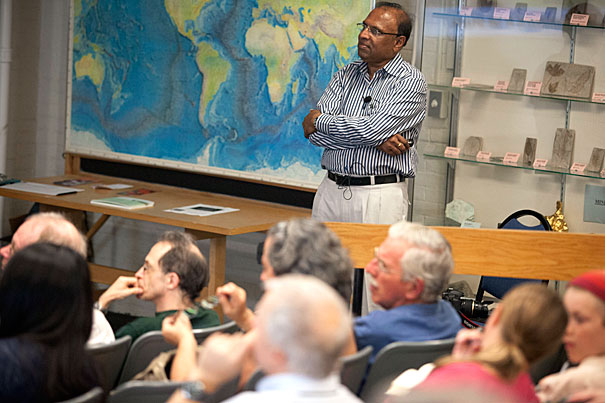
-
Simplifying multidrug therapies
As described in a paper published in the Proceedings of the National Academy of Sciences, a research team found that by studying how drugs interact in pairs, researchers can predict how larger combinations of drugs will interact.
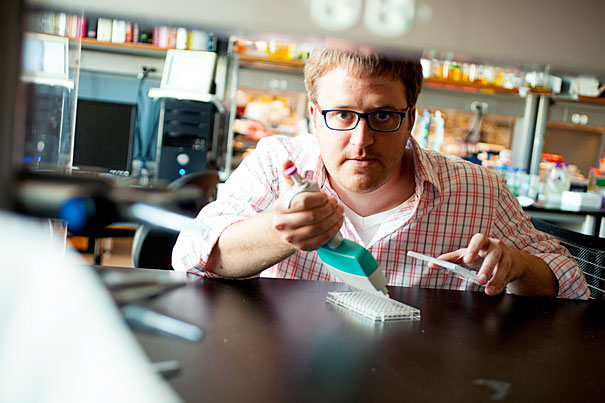
-
Estrogen and female anxiety
Some women’s vulnerability to anxiety and mood disorders may be explained by their estrogen levels, according to new research by Harvard and Emory University neuroscientists.
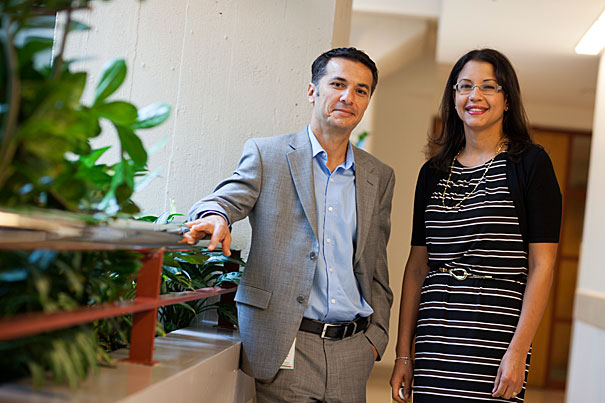
-
Mercury pollution, still spreading
With mercury contamination from coal burning and other industrial processes spreading in the environment, a new book edited by a Harvard Medical School staff member offers an overview, touching on chemistry, biology, and public health.
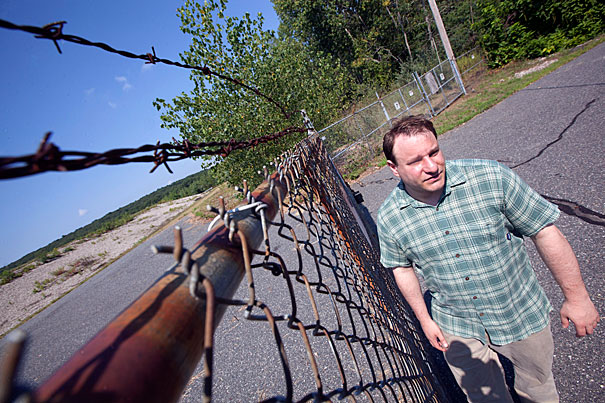
-
Stars in the making
A paper authored by Harvard’s Eli Visbal with colleagues from the California Institute of Technology and Tel Aviv University suggests that it may be far easier than commonly thought to peer deep into the universe’s history and observe the telltale signs of the formation of the first stars and galaxies.

-
Health care savings, naturally
Though questions persist about whether natural remedies are as effective as their pharmacological cousins, one Harvard researcher is trying to understand the economic benefits people receive by relying on such traditional cures.
-
Giving slime the slip
A team of Harvard scientists has developed a slick way to prevent the troublesome biofilms from ever forming on a surface.

-
Alcohol abuse after weight loss surgery?
Experts on the use of bariatric surgery for the treatment of obesity gathered at the Radcliffe Institute for Advanced Study earlier this month for a two-day seminar examining new evidence that stomach surgery for the treatment of obesity has unexpected side effects, including an increased incidence of alcohol abuse among patients.
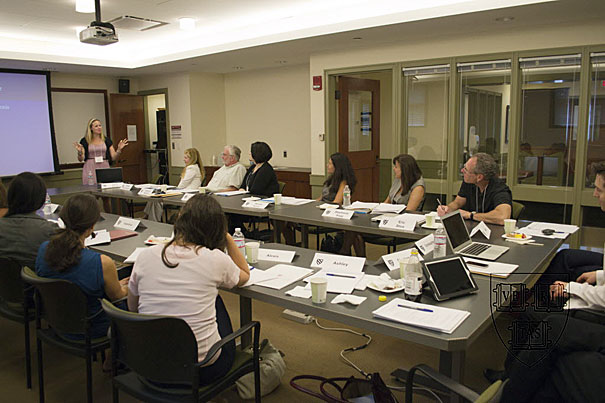
-
A fresh look at mental illness
In a paper published in Neuron, Joshua Buckholtz and co-author Andreas Meyer-Lindenberg identify a biological reason for why many mental disorders share similar symptoms, a situation that makes diagnosis challenging.
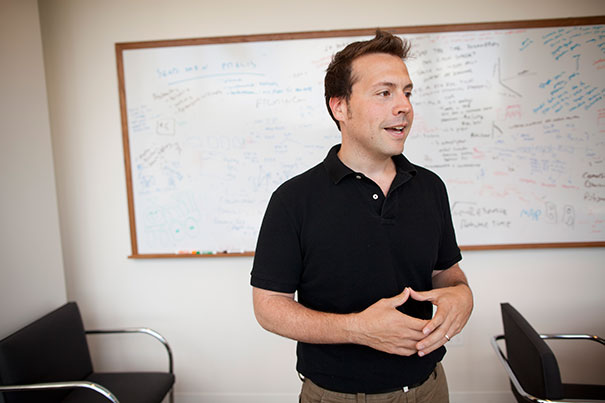
-
Expanding Medicaid to low-income adults
A new study from Harvard School of Public Health (HSPH) finds that expanding Medicaid to low-income adults leads to widespread gains in coverage, increased access to care, and — most importantly — improved health and reduced mortality.

-
Fixing the way we fix the brain
With neurodegenerative diseases affecting millions and having the potential to bankrupt the U.S. health care system, Harvard Medical School, seven pharmaceutical companies, and the Massachusetts state government have formed the Massachusetts Neuroscience Consortium. The goal: to offer new collaborative research models.
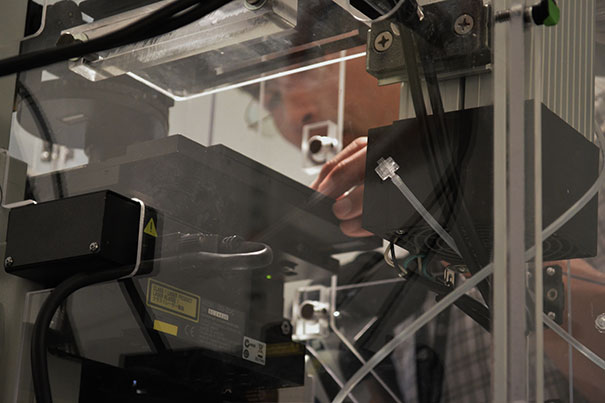
-
What wakes me
Clifford Saper, chair of neurology at Harvard Medical School, and colleagues at Beth Israel Deaconess Medical Center recently discovered a brainstem area that senses oxygen dips and drives waking.
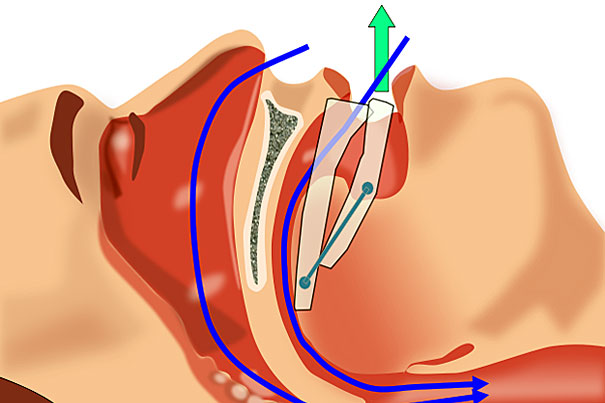
-
New branch of science
Scientists from the Arnold Arboretum and the University of Colorado are working to define for the first time the complete microbiome of a tree.
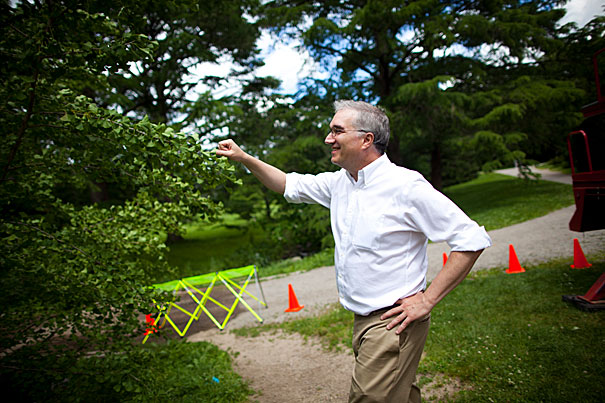
-
Giving phobias a rest
A Harvard-led research team has found that exposure therapy for irrational fear of spiders seems to be more effective if it is followed by sleep, according to a recent study in the Journal of Psychiatric Research.

-
Artificial jellyfish swims in a heartbeat
A team of researchers at Harvard University and the California Institute of Technology has turned inanimate silicon and living cardiac muscle cells into a freely swimming “jellyfish.”

-
Mushroom relations
Harvard researchers are using one of the most comprehensive fungal “family trees” ever created to unlock evolutionary secrets.
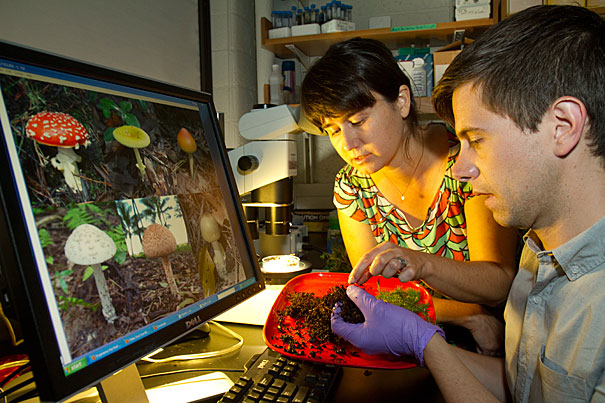
-
Women pay high price for high job strain
New research from Brigham and Women’s Hospital (BWH) finds that women with high job strain are more likely to experience a cardiovascular-related event compared with women with low job strain. These findings are published in the open access journal PLoS ONE.
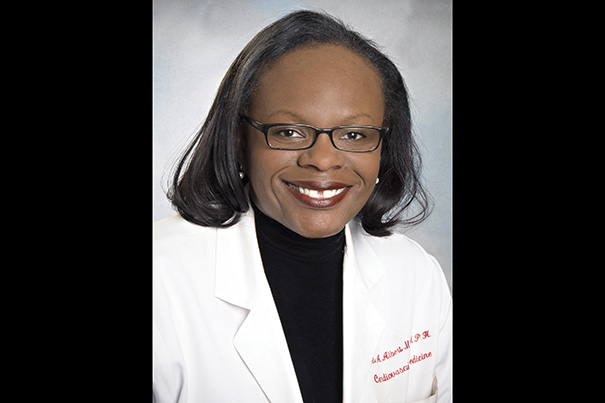
-
Cancer care comes to Rwanda
Paul Farmer, chair of Harvard Medical School’s Department of Global Health and Social Medicine and co-founder of Partners In Health, announced the opening of Butaro Cancer Center of Excellence, which will serve as the first national cancer referral facility in rural Rwanda.

-
Doctor knots
Harvard researchers have developed a method to determine the effect of social networks among doctors on cost and quality of care across the nation.
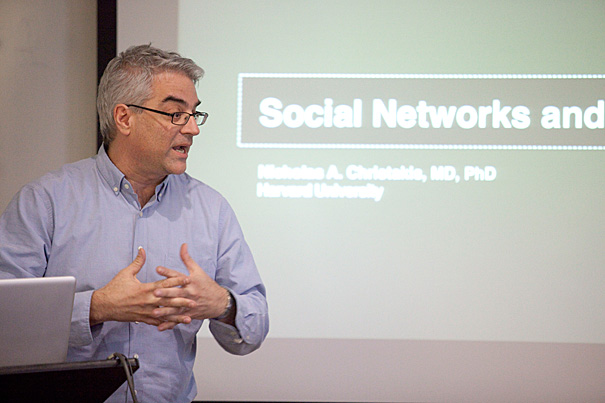
-
Personalized medicine closer to reality
A consortium of scientists at 20 institutions, led by a principal faculty member at the Harvard Stem Cell Institute, has used stem cells to take a major step toward developing personalized medicine to treat Parkinson’s disease.
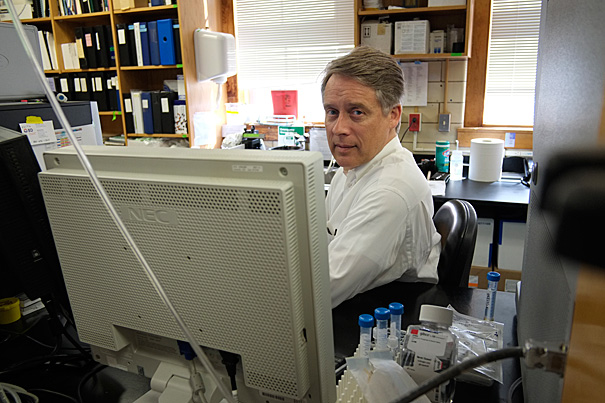
-
In obesity battle, beige is the new brown
Scientists at Harvard-affiliated Dana-Farber Cancer Institute have isolated a new type of energy-burning fat cell in adult humans, which they say may have therapeutic potential for treating obesity.
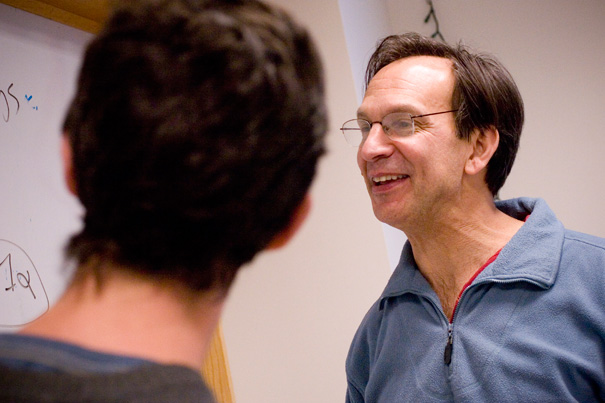
-
Moving beyond health care’s fee-for-service
Harvard researchers find that global budgets for health care, an alternative to the traditional fee-for-service model of reimbursement, can slow the growth of medical spending and improve the quality of care for patients.
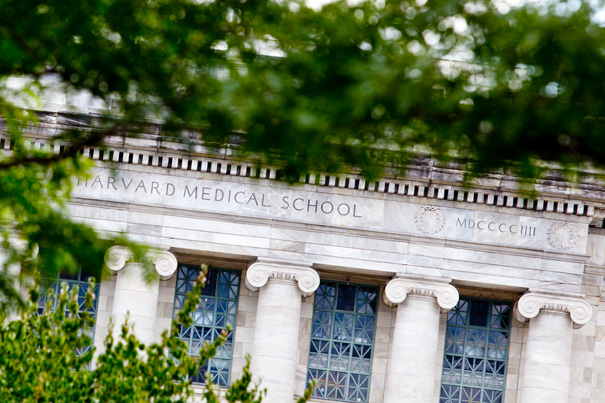
-
Transforming cancer treatment
Professor Martin Nowak is one of several co-authors of a paper, published in Nature on June 28,that outlines a new approach to cancer treatment that could make many cancers manageable, if not curable, by overcoming resistance to certain drug treatments.
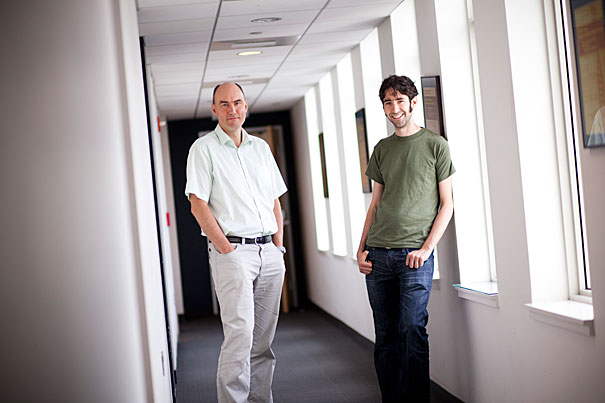
-
One million species, and counting
Just weeks after adding its millionth Web page, the online biology clearinghouse called the Encyclopedia of Life (EOL) has received a grant from the Sloan Foundation that will allow it to continue its mission of documenting every living plant and animal species on the globe.
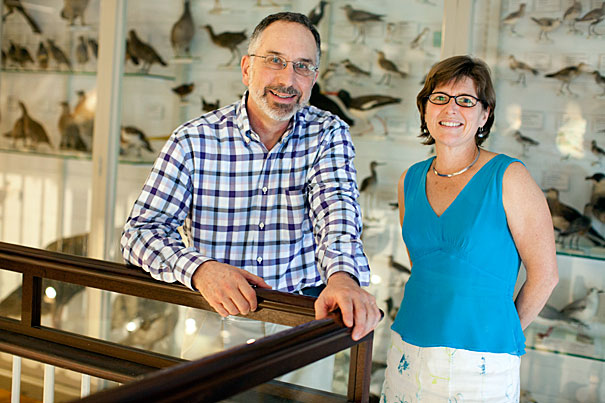
-
The positives of playing favorites
As described in a paper in Scientific Reports, a study led by Feng Fu, a postdoctoral researcher at Harvard’s Program for Evolutionary Dynamics, found that in-group favoritism — the tendency of people to help other members of the same group — is critical in establishing high-level cooperation that ultimately benefits the whole.
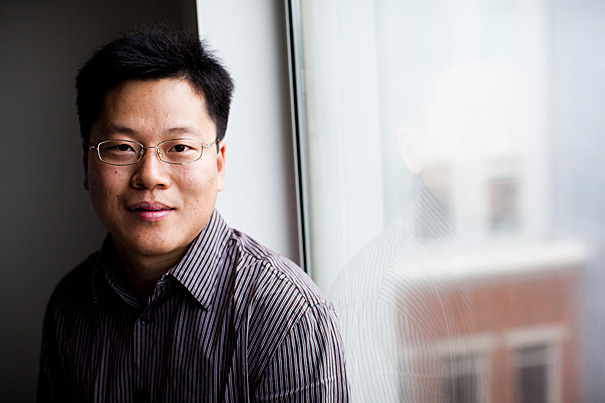
-
Clot-busting technology goes straight to work
Researchers at the Wyss Institute for Biologically Inspired Engineering at Harvard have developed a novel biomimetic strategy that delivers life-saving nanotherapeutics directly to obstructed blood vessels, dissolving blood clots before they cause serious damage or even death.
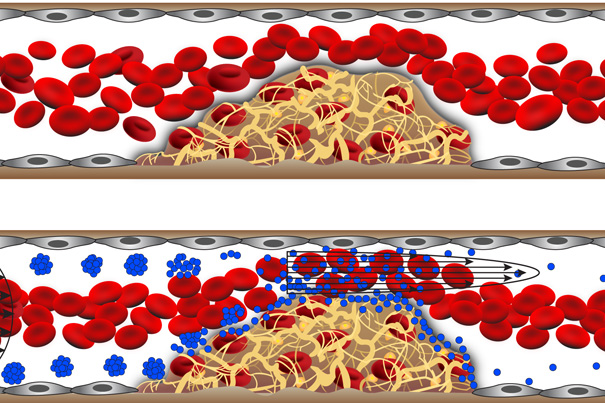
-
When skin cancer cells resist drug treatment
Harvard researchers have found that although tailored drugs can eradicate melanoma cells in the lab, they often produce only partial, temporary responses in patients. Researchers have now learned that normal cells that reside within the tumor, part of the tumor microenvironment, may supply factors that help cancer cells grow and survive despite the presence of anti-cancer drugs.
